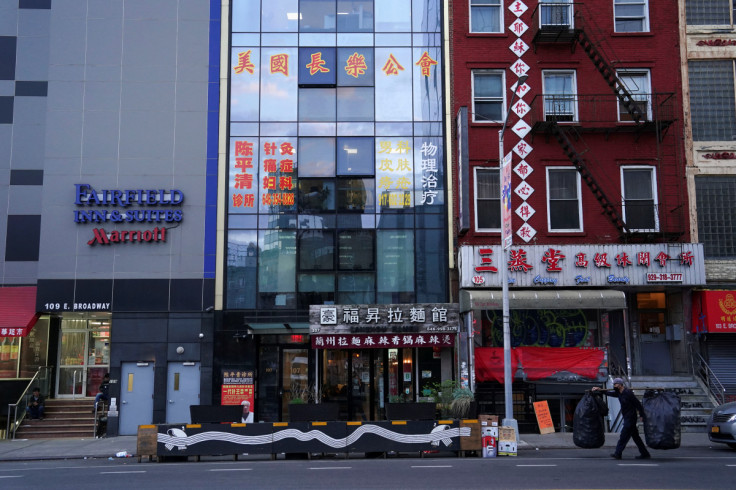China 'Police Station' Case Shows U.S. Ramping Up Use Of Foreign Agent Laws

U.S. charges last week against two people for allegedly running a Chinese "secret police station" in New York marked the latest case in a broad ramp-up in the use of a century-old law meant to curb the activity of foreign agents.
The law, Section 951, was passed as part of the 1917 Espionage Act - enacted partly to combat resistance to the World War One draft - and makes it illegal to operate in the United States subject to a foreign government's direction or control without notifying the Attorney General.
The Justice Department last year charged at least 25 people with violating or conspiring to violate the law. That was the highest number since at least 2003, according to a Reuters review of Justice Department statements and court records. Prosecutors have charged at least nine since the start of this year.
Alarmed by the efforts of Russia, China and others to influence U.S. elections and intimidate political opponents on American soil, the U.S. government has prioritized suspected cases of spying, illegal lobbying and harassment.
In the New York case, Lu Jianwang and Chen Jinping are accused of working on behalf of China's Ministry of Public Security. They were charged with conspiring to violate Section 951.
The Chinese government has denied maintaining overseas police stations but has said there are volunteer-run centers outside China that help Chinese citizens renew documents and offer other services.
The record number of foreign agent cases "shows that this issue of foreign agents in the U.S. is a national security priority and the Department of Justice and the FBI are devoting a ton of time and resources to identifying and charging those cases," said Brandon Van Grack, a former Justice Department national security prosecutor now at law firm Morrison Foerster.
The unit responsible for enforcing foreign agent laws has grown in the past five years to five lawyers and five analysts, along with a dedicated FBI employee and support staff, according to a Department of Justice official.
In response to questions from Reuters, Breon Peace, the U.S. Attorney in Brooklyn who brought the New York charges, said the Department of Justice has been "sounding the alarm" about so-called transnational repression efforts. He added that his office uses the foreign agent statute and other tools to combat the trend.
Lu and Chen have not yet entered pleas. Their lawyers did not immediately respond to requests for comment.
A RARELY TESTED STATUTE
While once mainly used against traditional espionage, Section 951 cases brought in recent years have targeted "influence operations" and harassment of U.S.-based dissidents.
The broad increase in enforcement of Section 951 and a related law, the Foreign Agents Registration Act, started as a response to Russia's alleged interference in the 2016 presidential election. In 2022 most of the cases involved "transnational repression" by people acting on behalf of China.
Despite the surge in cases, the more recent applications of the statute have rarely been tested at trial, because many cases have ended in guilty pleas or remain open because the defendants are overseas. The law requires proving a defendant intended to act at another country's direction, which can be difficult, experts said.
The Justice Department has had some recent setbacks with Section 951 cases. Earlier this year, federal prosecutors in Brooklyn dropped charges against a New York City police officer arrested in 2020 for allegedly acting as a Chinese agent, stating that more evidence became available.
Last November, former Donald Trump fundraiser Tom Barrack was acquitted on charges of acting as a United Arab Emirates agent. He said his interactions with Emirati officials were part of his job as a private equity executive.
"Not only did Tom Barrack's actions never cross the line, they never came anywhere close to the line," Barrack's lawyer Michael Schachter said in a statement.
After the acquittal, Justice Department official Jay Bratt told a conference the department would "continue to bring hard cases."
David Aaron of law firm Perkins Coie said much of the activity being charged under Section 951 "has probably been going on for decades."
"It's just become more of a priority to disrupt it," said Aaron, a former national security prosecutor.
© Copyright Thomson Reuters 2024. All rights reserved.





















